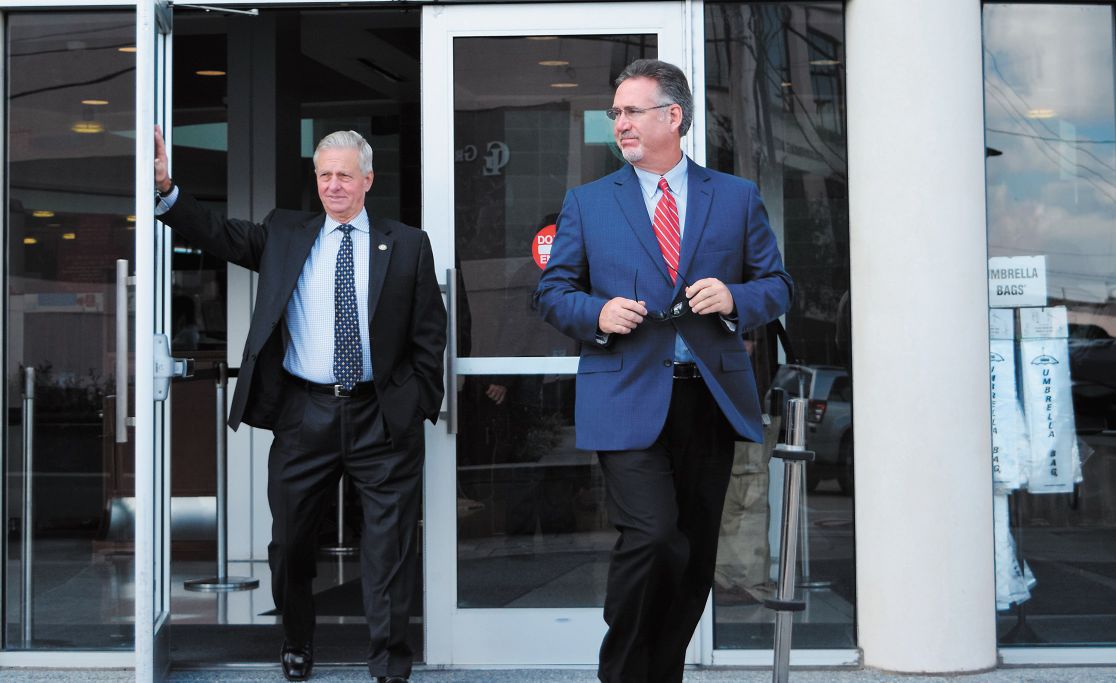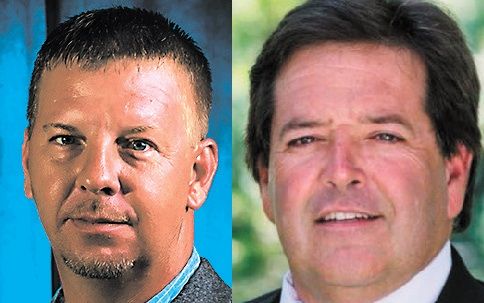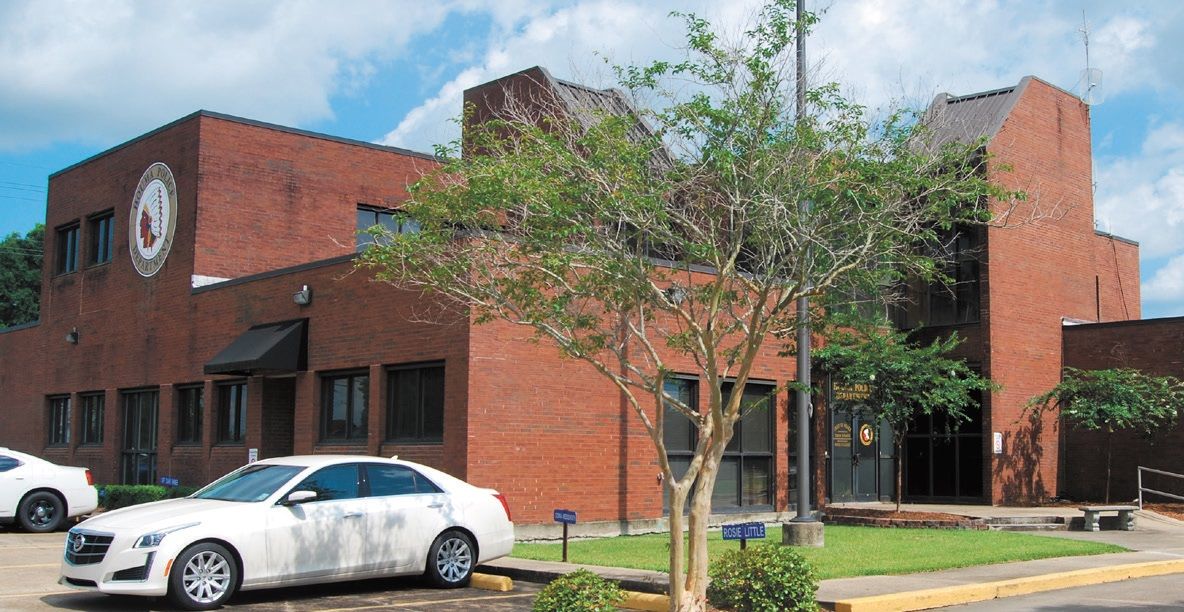
Defamation suit brings parish brass to court
September 30, 2015
2 disqualified from election
September 30, 2015Terrebonne Parish President Michel Claudet has proposed a pay raise for Houma Police officers in his 2016 budget in an effort to improve recruiting for the force.
Claudet presented his proposed budget at the Parish Council meeting last Wednesday. He noted during his presentation that the provisional budget for next year contains a 2 percent jump for all those working for the Houma PD.
The raise comes after months of wrangling between the president, the parish council and government employees. The council had created a committee to seek money for raises for all parish employees, but only Houma Police received an increase in pay. The police had been receiving 1 percent raises. The fire department requested an additional raise aside from a state-mandated 2 percent raise, but did not receive it.
According to Claudet, the downswing in parish revenues this year made drafting the 2016 budget a challenge.
The decline in the oil and gas economy has hurt how much the parish is making in both state mineral royalties and sales tax revenue. However, there was “overwhelming support” from the parish council to make the raise for police happen.
Jamie Elfert, chief financialofficer of Terrebonne Parish, said that when councilmembers presented “wish lists” in regards to the budget, the bump in pay was
at the forefront.
“I think almost all of them requested that payment for salary increases be on the top of their list as a priority,” Elfert said.
District 1 Councilman John Navy, who was on the council seeking raise money, said that Claudet had to respond to the council’s insistence on the raise.
“I think his conclusion in reading the budget, the council gave him a directive to find money for the police department and he told us that he did just that, at the expense of other areas maybe getting cut,” Navy said. “That’s the concern, I think that he was just trying to oblige the council.”
With declining revenues and an increase in pay for officers, the parish has had to tighten its belt in other areas. According to the 2016 budget message, the president’s
office has already started requesting departments slow down on recurring and non-recurring spending. These slowdowns result in cutting back on overtime and holding off on filling vacated positions when they can.
The economic downturn will affect infrastructure plans as well. The parish has about $6 million in reserves for 2016, according to Elfert.
This money provides a cash flow to balance budgets when a revenue source is lost, and excess reserve money also goes toward capital projects. Though projects currently ongoing are funded, new projects in 2016 can’t be paid for with only $6 million in reserves.
“Anything above that $8 million mark, we use for non-recurring capital infrastructure projects, such as a road, or a bridge or drainage,” Elfert said.
The parish also had to cut back on involvement in non-profits in the community for 2016. Co-sponsorships of non-profit activities have been eliminated, as well as membership in different coastal restoration organizations, such as the Morganza to Gulf Coalition and Restore and Retreat. Even supplements to big events like Independence Day celebrations and Rougarou Festival couldn’t make the budget. According to Elfert, the parish saved about $140,000 from dropping these involvements.
NEW OFFICERS, BUT WILL THEY STAY?
The Houma PD currently has 92 officers on staff, with 102 positions budgeted for, according to Houma Police Association President Kyle Faulk. To fill those openings, Claudet has proposed money aside from the 2 percent raise to attract new policemen.
Most new officers must complete a mandated 16- week Peace Officer Standards and Training certification and serve one year on the force to become eligible for $6,000 of supplemental pay per year from the state.
Claudet has proposed to pay for that supplemental pay for first-year officers.
Faulk said that these efforts will improve recruiting, but do not promote retention among the force.
“I think it is going to help extremely with recruiting, however I don’t feel that the 2 percent [raise] is going to help much with retention for veteran officers,” Faulk said.
Faulk presented a report conducted by the International Union of Police Associations to the parish council in April that compared Houma PD’s wages with those of other similar departments in Louisiana.
Houma PD’s senior officers across all ranks had the lowest average pay, according to the report. Faulk thinks that the president failed to adequately respond to that finding with his budget proposal.
“At that time [the report] shows our officers, senior staff now, probably about 15 percent below where they should be. So, a 2 percent raise still leaves about 13 percent on the table where it needs to be at,” Faulk said.
This gap in pay leads to senior officers looking at other jobs, according to Faulk.
However, Houma PD is not losing veterans to other police departments in the state. According to Navy, the opportunity in the oilfield calls officers.
“That has been a trend for years, because the oilfield was doing better, police were inclined to take better paying jobs that have less risk in relation to their pay,” Navy said.
So while the oil industry bouncing back would give the parish more funds to provide larger raises to the police, a strong energy economy means more oil jobs are available.
“You come along and offer $65-70,000 to go do something in the oilfield, these guys are leaving,” Faulk said. “We’re going to get some young guys in, we’ll keep a few, when the oilfield booms, we lose a lot.”
ISSUES WITH THE METHOD OF REQUEST
Claudet said he did not know of the police’s desire for a raise until they made their request at a parish council meeting, and questioned the handling of it.
“For them going to the council right before an election, with members of the union doing that, that’s just not protocol in parish government,” the parish president told The Times.












